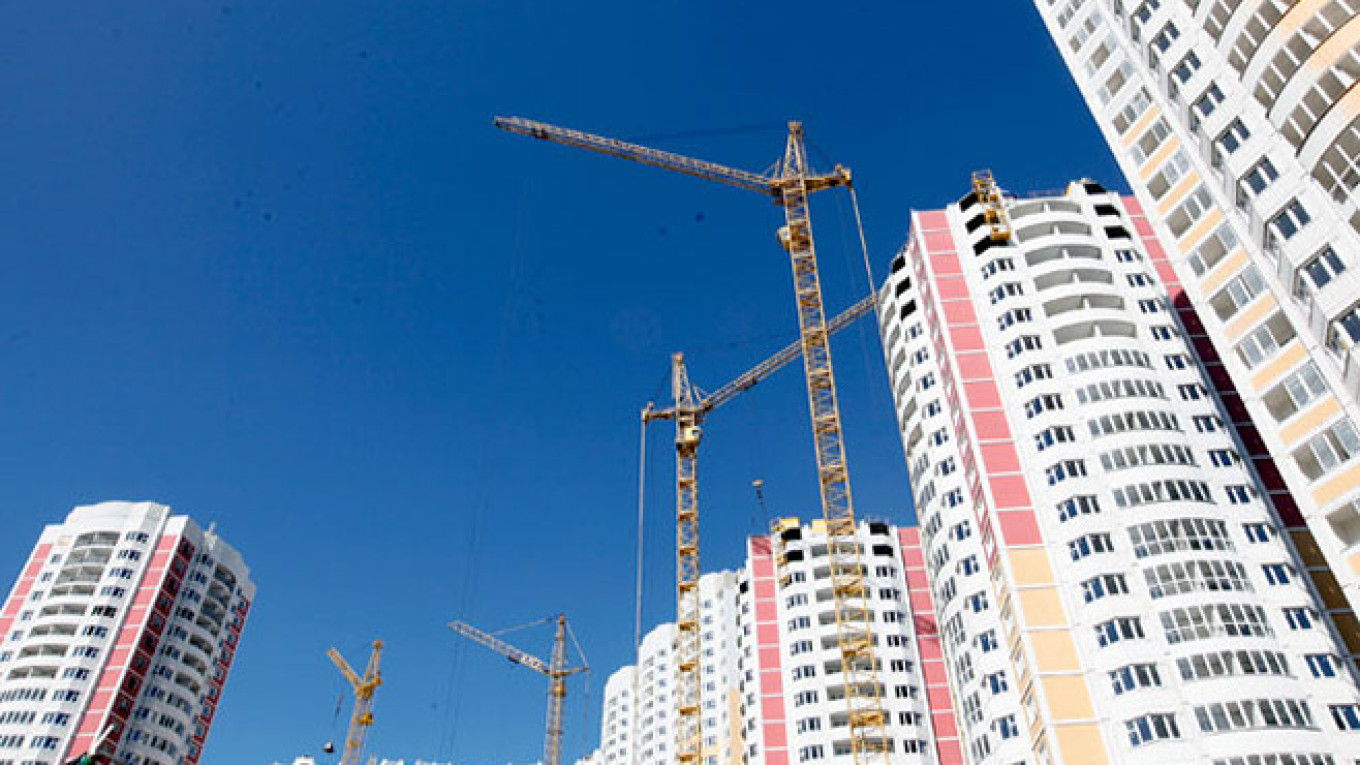About 100 Russians who have seen their mortgage payments rocket due to the plunge in the value of the ruble took to the streets of central Moscow on Friday to demand state help.
It was one of the first significant protests over the currency, which has fallen more than 40 percent against the U.S. dollar this year, pushing up the cost not only of imported goods but also of the low-interest foreign-currency mortgages that the protesters had taken out.
"We are Russian citizens. We don't want to be left without a roof over our heads. We don't want to default," said Yelena Lebedenko, an accountant whose monthly repayments have in seven years risen from 40,000 rubles to nearly 90,000.
"We want to pay loans based on the exchange rate at the time we signed the papers. The authorities, our government, must see to that."
Most of the anger appeared to be aimed at the Central Bank and government rather than at President Vladimir Putin, whose ratings have been sky-high since the start of the Ukraine crisis and Russia's annexation of Crimea from Ukraine in March.
Yet his popularity is based partly on the relative financial stability and prosperity of most of his 15 years in power, and the Kremlin has been wary of any signs of discontent since big protests in the winter of 2011-12 after a parliamentary election marred by accusations of fraud.
A handful of protesters who tried to picket the headquarters of the central bank on Friday were quickly asked to leave, and joined the larger rally on a snow-covered boulevard nearby.
Their banners read: "Save our families from the ruble rate" and "The Central Bank stole our future."
"Since I took my mortgage, my salary has remained at 70,000 rubles but my monthly payment now is 85,000 a month," said Irina, a woman in her 30s who works in an advertising firm.
"I want justice. They should not only help the banks but people like me … I've already borrowed from all my friends. They're not taking my calls any more."
The Central Bank says the total value of foreign-currency mortgages stood at 129 billion rubles on Nov. 1, a small fraction of the 7 trillion in ruble mortgages.
The ruble was trading at 33 to the U.S. dollar at the start of the year, but on Friday fell past 57 to the dollar.
Its plunge has largely followed a slide in the price of oil, Russia's predominant source of foreign currency, highlighting the lack of a competitive manufacturing base that Putin's critics say he has done little to address.
The Central Bank said Friday that it could not interfere in arrangements between commercial banks and their clients.
A Message from The Moscow Times:
Dear readers,
We are facing unprecedented challenges. Russia's Prosecutor General's Office has designated The Moscow Times as an "undesirable" organization, criminalizing our work and putting our staff at risk of prosecution. This follows our earlier unjust labeling as a "foreign agent."
These actions are direct attempts to silence independent journalism in Russia. The authorities claim our work "discredits the decisions of the Russian leadership." We see things differently: we strive to provide accurate, unbiased reporting on Russia.
We, the journalists of The Moscow Times, refuse to be silenced. But to continue our work, we need your help.
Your support, no matter how small, makes a world of difference. If you can, please support us monthly starting from just $2. It's quick to set up, and every contribution makes a significant impact.
By supporting The Moscow Times, you're defending open, independent journalism in the face of repression. Thank you for standing with us.
Remind me later.


